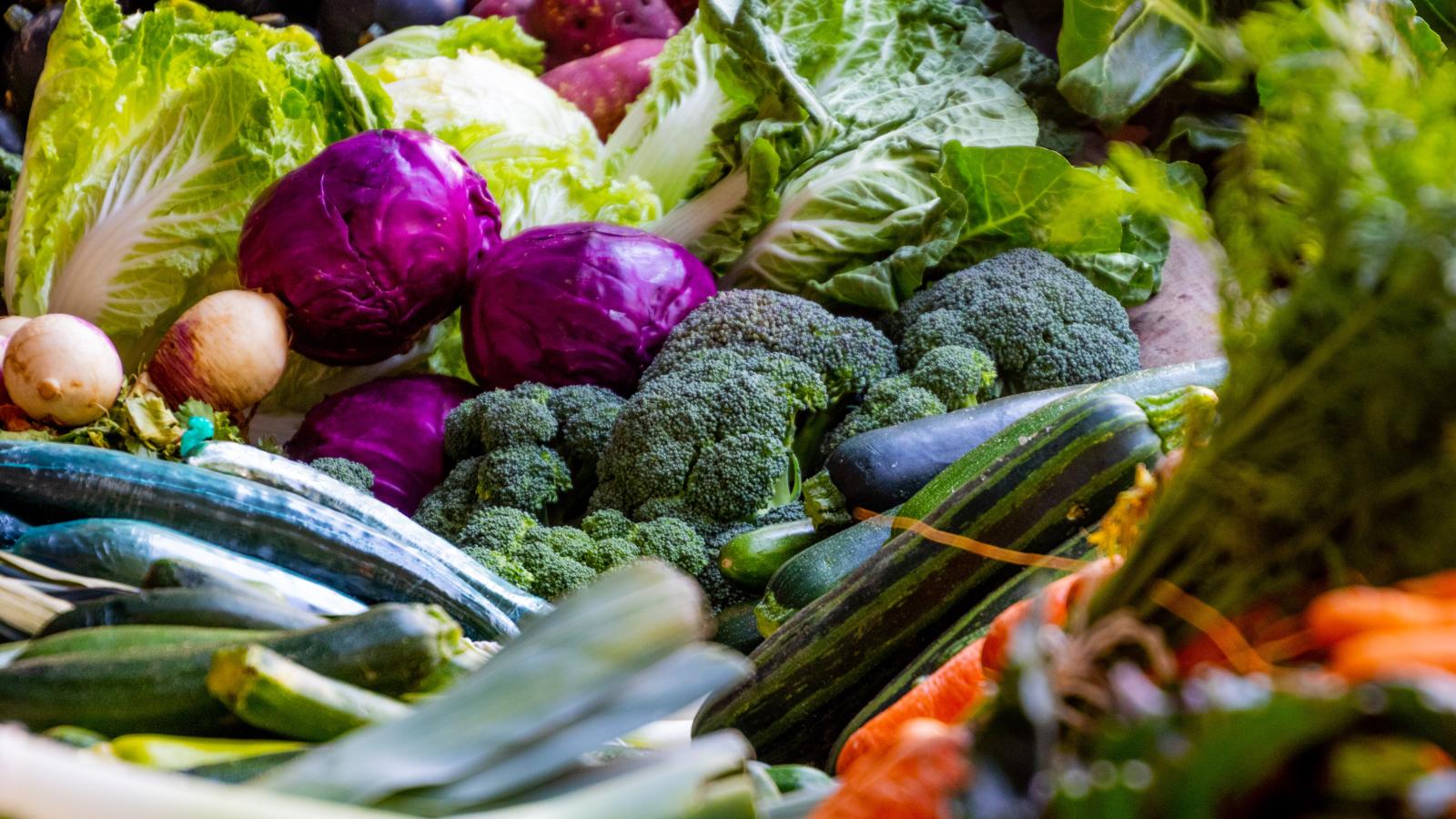Eat smarter

It’s true: Eating smarter can help prevent cancer.
Your diet has a powerful effect on your health, including your risk of cancers of up to 6 cancers including bowel, prostate, stomach and oesophageal.
Eating smarter along with being active, will result in a healthy weight. You can start to eat smarter at any time, from childhood to old age. No matter when you start, you will begin to be healthier and reduce your cancer risk.
Eating smarter means choosing a diet that is:
- Rich in vegetables and fruit
- High in fibre
- Low in red meat and processed meat, saturated fat and salt
Our top tips to eat smarter set out how you can make healthier food choices every day. And eating smarter doesn’t just protect you from cancer and other diseases. It will also provide you with plenty of energy and the key ingredients for looking and feeling great at any age.
Top tips to EAT SMARTER
Eat at least 5 to 7 portions of vegetables and fruit a day. Fruit and vegetables with a wide variety of colours will help you get a broad range of vitamins and minerals. Use fresh, tinned, frozen or dried fruit and vegetables. Smoothies, vegetable soups, stews and casseroles can also help boost your intake. | E |
Aim for 3 to 5 portions of high-fibre foods every day. Choose wholegrain foods which are high in fibre and will help you stay fuller for longer. Wholegrain foods include brown bread, brown rice, wholewheat pasta and porridge | A |
Try to include pulses in your diet most days. Pulses are also high in fibre and will keep hunger pangs at bay. Pulses include peas, beans and lentils. Tinned versions are convenient and taste great when added to salads, casseroles or soups | T |
Stay away from foods that are high in fat and sugar, or eat them in very small quantities. These include cakes, sweets and biscuits. Avoid butter, oil, fatty meat and fried foods. Go for lean meat and low-fat options. Cook healthier by steaming, baking and grilling. | S |
Meatless Mondays, anyone? A diet high in red and processed meat is linked to bowel cancer. Red meat includes beef, lamb and pork. Processed meats include sausages, hams, salami and rashers. Replace red meat with other protein like chicken, fish and beans. Do not eat more than 500g of cooked lean red meat (800g raw meat) in a week. And why not try one meat-free day a week? This is a great way of reducing the amount of meat you eat while boosting your intake or vegetables and pulses. | M |
Alcohol in moderation. Alcoholic drinks are high in calories and drinking alcohol increases your risk of many cancers. Limit your intake to no more than two standard drinks per day, with some alcohol free days. | A |
Reduce your salt intake. In Ireland, we take almost twice as much salt as we need. High levels of salt are linked with stomach cancer. Cut out salt when cooking and at the table. Try flavouring foods with pepper, herbs, lemon juice, garlic and spices. Try to avoid pre-packed and processed meals. Go for fresh ingredients that you cook yourself. Check the labels for salt (sodium) content – even foods like cornflakes can have salt added. | R |
Take it easy with your portion sizes. Although we might be choosing healthy snacks and food, our portions sizes are often too large. | T |
Enjoy your food! Slow down and focus on your food. Don't eat on the go – take time to sit down and enjoy your meals. | E |
Rely on the Food Pyramid to plan your healthy food choices every day. This tells you what makes up a balanced, nourishing diet. | R |
About dietary supplements and ‘superfoods’
The best source of nourishment is food and drink, not dietary supplements. You can get all the nutrients you need from a healthy, balanced diet. Unless your doctor or dietician suggests supplements, you do not need them.
Likewise, there are often stories in the media about specific foods or so-called ‘superfoods’ that are meant to be particularly good for us. But you should not rely on superfoods to reduce your risk of cancer. Nothing beats a healthy, balanced diet.
For more information
Phone
1800 200 700


